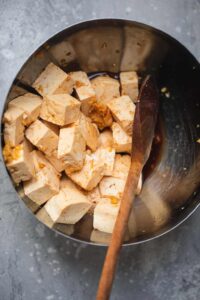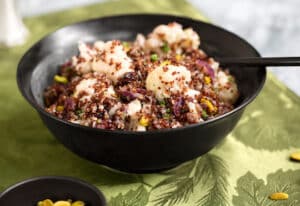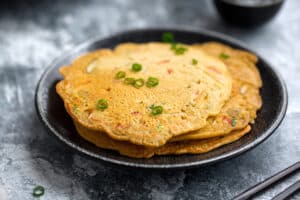Much of the research on the relationship of saturated fats and heart disease points to the possibility that saturated fats and cholesterol in animal products may play more of a role in causing health problems than saturated fats in plant foods. However, as researchers uncover more information on the role of nutrition in health, it often becomes less clear why various foods cause or prevent disease. Heredity plays a key role in shaping our biology and to what degree each of us is susceptible to certain health problems.
Although the consumption of cholesterol and saturated animal fat can lead to high cholesterol levels and heart disease, there are scores of people whose cholesterol levels are not adversely affected this way.
Many medical professionals believe that the simple theories about whether saturated fats and cholesterol are bad for health depend on whether these substances are eaten as whole foods (or as part of a diet rich in whole foods) or if one’s diet is largely made up of refined foods. Even the 1996 Harvard University study that was quoted at the end of chapter two indicating that whole plant foods might play a significant role in protecting individuals from heart disease, whether or not they eat foods high in cholesterol or saturated fat.
For many years the focus of nutritional recommendations for people with diabetes was to reduce the amount of sugar and other carbohydrates they consumed. In more recent years, diabetes research has become more sophisticated, and there is growing concern about the amount of fat contributing to increased incidence of diabetes. With the growing epidemic of obesity, it is impossible to ignore the fact that being overweight increases our chances of contracting diabetes, affirming that no singular food group is the culprit when it comes to the development of this terrible disease. An interesting discovery researchers have made as the measure the effects of the variety of foods on blood sugar levels is that unprocessed, high-fiber foods do the best job of regulating blood sugar, regardless of whether these foods are primarily carbohydrates, fats, or protein. This revelation also makes a good case for embracing a wide variety of whole plant foods in the diet, rather than focusing on one food group or nutritional component as being a destroyer or proponent of good health.
Does the inclusion of fresh coconut in the diet help boost the healthful properties of coconut oil? P.K Thampan makes a good case for considering that the benefits of coconut oil can be optimized by including it in a whole foods, plant-based diet when he states:
All the edible components of coconut contribute substantially to the dietary calories of people in the major coconut growing and consuming countries. The edible components are also good sources of protein, fibre, and minerals. This could be the reason why people consuming large amounts of coconut and coconut oil in a varied diet in different parts of the world do not demonstrate hypercholesterolaemia [high cholesterol levels] and coronary heart disease.
The only limitation in the dietary use of coconut oil is its low content of essential fatty acids. This deficiency will not, however, become manifest when people consume a normal diet containing cereals, pulses [beans and other legumes], roots and tubers, fish etc. which are good sources of these acids. Coconut oil and coconut kernel [coconut meat] as dietary components sustain optimum levels of vitamin E in people besides causing enhanced secretion of insulin and utilization of blood glucose.
We support this conclusion that using coconut oil—or any good-quality oil—is enhanced when it’s a part of a whole foods, plant-based diet.
Exerpted from Coconut Oil for Health and Beauty* by Cynthia and Laura Holzapfel (Book Publishing Co.), reprinted by permission.
- For lots more features on healthy lifestyle, explore VegKitchen’s Healthy Vegan Kitchen page.
- Here are more of VegKitchen’s Natural Food Guides.
*This post contains affiliate links. If the product is purchased by linking through this review, VegKitchen receives a modest commission, which helps maintain our site and helps it to continue growing!






Rey Sabio says
A coconut tree yields not only coconut fruit which is made into many basic and healthy food products including coconut water beverage, coconut cider vinegar, coconut meat, whole coconut milk, coconut skim milk, coconut oil and coconut flour but also coconut nectar turned into healthy beverage, coconut vinegar, coconut honey, coconut sugar crystals, coconut tuba wine and lambanog alcohol beverage.